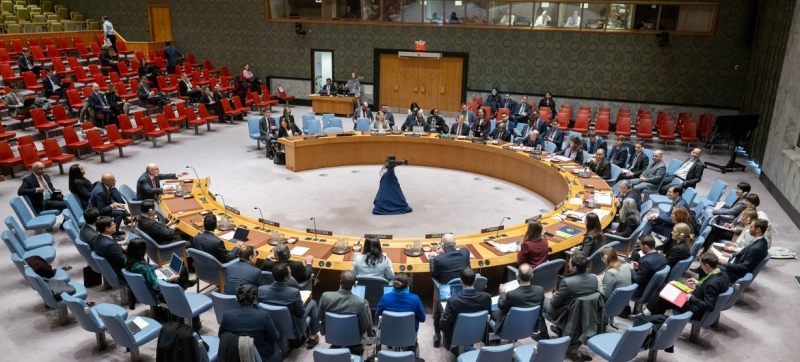
Security Council meeting. Special envoy for Syria: UN will support interim authorities Peace and security
Syria is at a critical moment in its political history. After suspending the 2012 constitution and dissolving parliament, the army and security services, the country’s interim president, Ahmed al-Sharaa, has promised to work on a new constitution, legislature and transitional government that will represent different groups in Syrian society, including women, men and youth. Geir Pedersen, the UN chief’s special envoy for Syria, briefed the Security Council on the latest developments in Syria on Wednesday.
UN to support transitional authorities
According to him, the interim president has repeatedly stated that the new government in Syria will belong to all Syrians and will be built on an inclusive basis. The UN stands ready to support the interim authorities, Pedersen stressed.
“The interim authorities have committed to consulting closely with me and my office at all stages of the transition, which must be Syrian-owned and Syrian-led. We look forward to translating this commitment into concrete actions,” Pedersen said.
“For our part, we remain ready to engage meaningfully and constructively with the interim authorities on the next steps, as agreed, to support the Syrian process in line with the key principles of Security Council resolution 2254,” he added.
Many Syrians, Pedersen noted, expressed concern about the lack of a legal basis for decision-making, as well as a lack of transparency. Some fear that the interim authorities, consisting mainly of representatives of the so-called Salvation Government, are making decisions that go beyond the powers of the interim regime.
Syrian women have expressed concerns about discriminatory practices and social pressure. They want not only protection, but also meaningful participation in decision-making and appointments to key positions, the Special Envoy emphasized.
Fighting continues in the northeast
The situation in Syria remains difficult, especially in the northeastern regions where fighting continues. “There is still daily fighting on the front lines, affecting civilians and civilian infrastructure,” Pedersen said.
“I welcome the fact that the interim authorities and the Syrian Democratic Forces have opened a direct channel of communication, even if progress has not yet been made. I urge the United States, Turkey, and regional and Syrian partners to work together on compromises that will allow peace and stability to take hold in northeast Syria,” he added.
Humanitarian Crisis and Freeze on US-Funded Activities
More than 70 percent of the population of Syria need humanitarian aid, UN Under-Secretary-General for Humanitarian Affairs Joyce Msuya told the Security Council. According to her, the situation in the country remains critical, especially against the backdrop of ongoing fighting in the north-eastern regions. Civilians are dying, thousands of people are fleeing their homes, and in some areas water and electricity supplies have been disrupted due to fighting.
The UN and its partners continue to provide assistance to the population, despite the difficult conditions, Msuya said. Since the end of November, 3.3 million people have received food, including bread. The Bab al-Hawa and Bab al-Salam border crossings with Turkey have seen 94 trucks carrying food and medicine cross in the past month, triple the number in the same period last year.
Funding remains a major challenge, the UN Under-Secretary-General stressed. The UN has requested $1.2 billion to help 6.7 million people until March 2025. However, the shortfall has already led to the closure of health facilities and the interruption of water supplies in camps for displaced people.
“We also await further clarity on the implications of the freeze on US-funded activities,” Msuya said. “In 2024, US funding accounted for more than a quarter of financial support for the Syria Humanitarian Response Plan,” she added.
The Deputy Secretary-General also reported that, in the face of uncertainty, many Syrian refugees are considering returning home. According to the UN, since December 2024, about 270,000 people have already returned to the country. More than a quarter of the refugees surveyed expressed a desire to return within a year.
